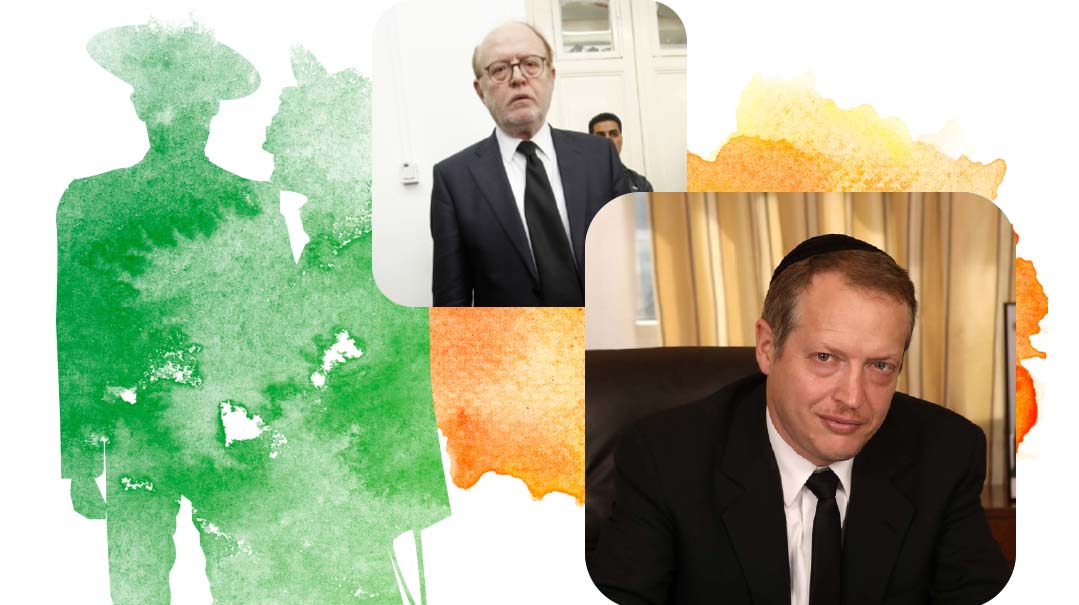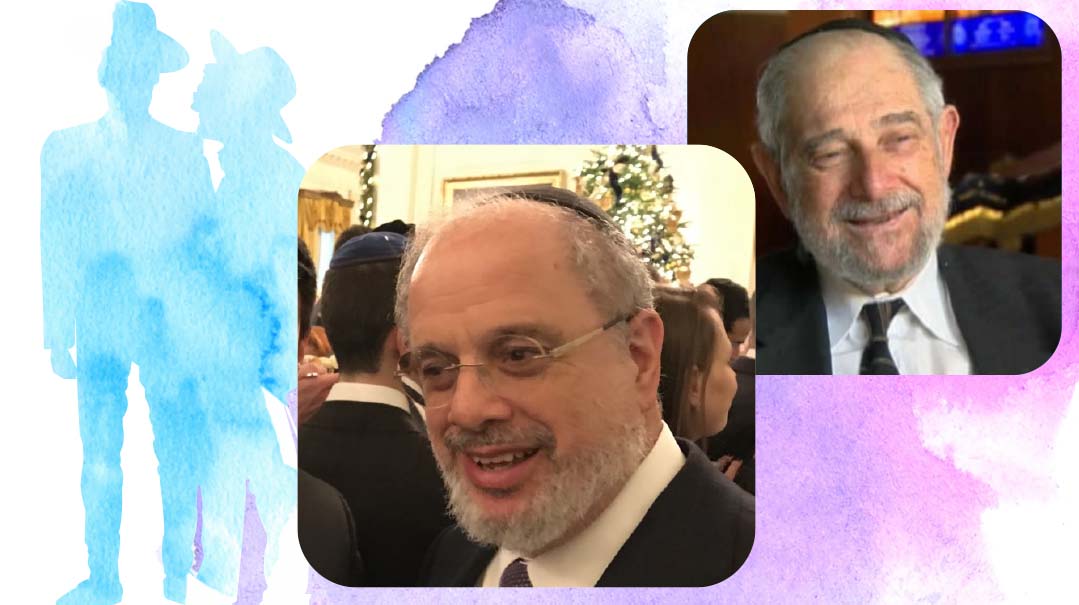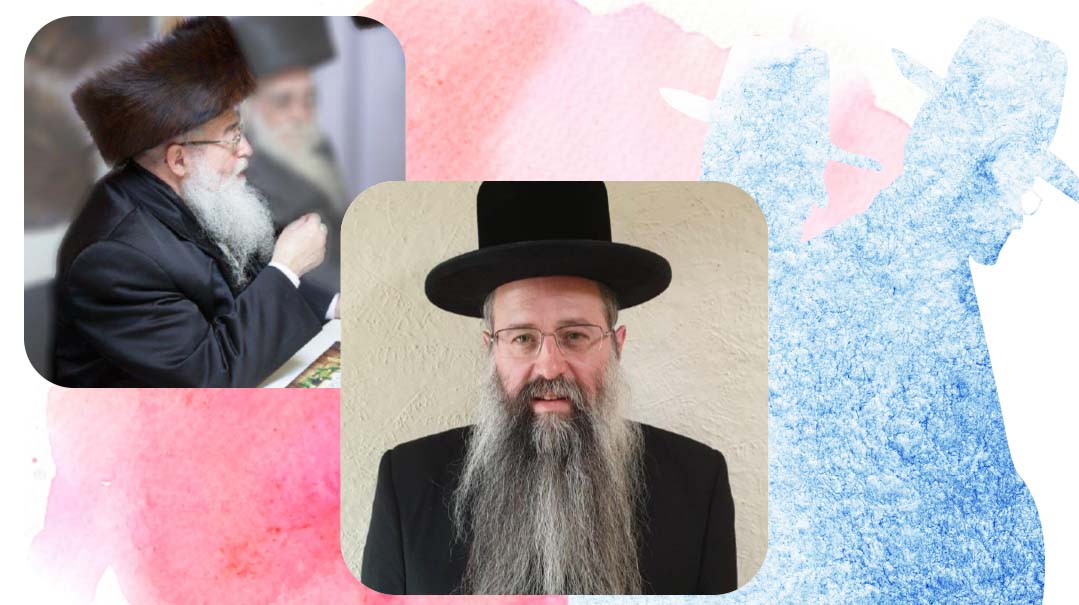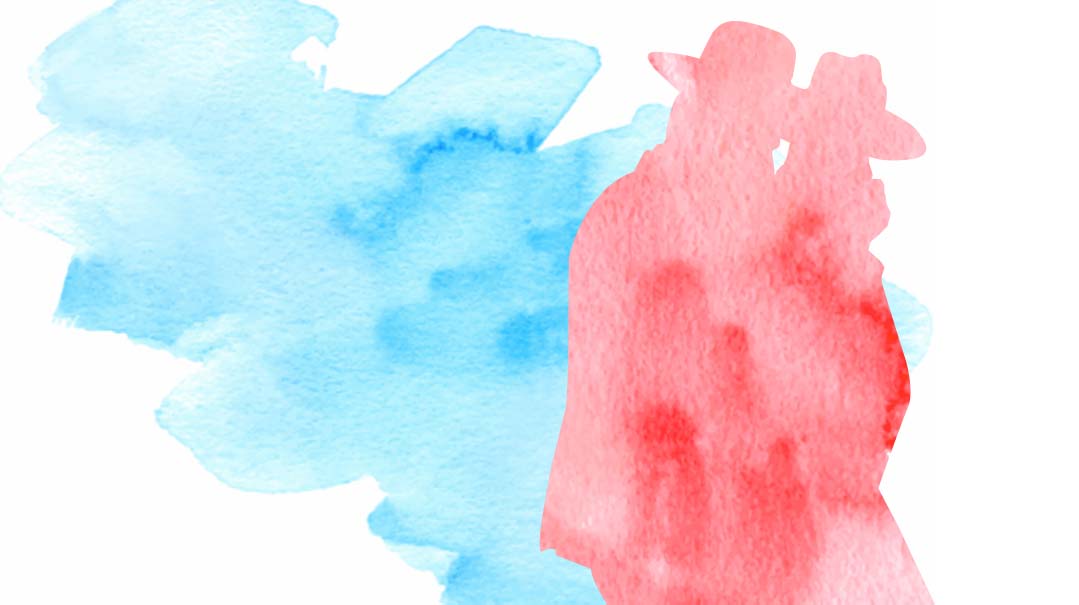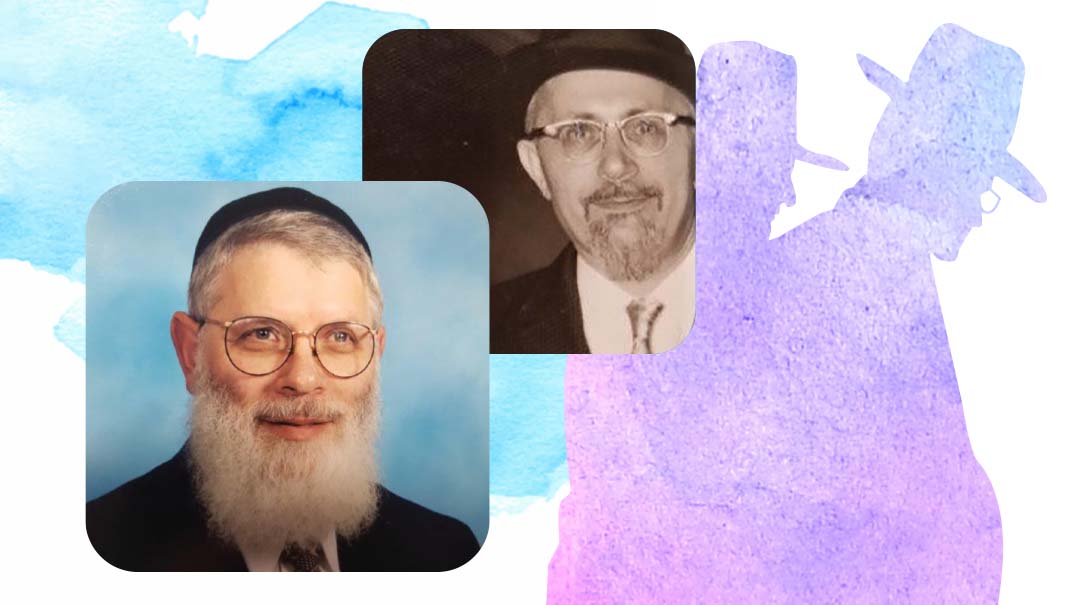Rabbi Hillel Goldberg
| September 14, 2021"You have no idea how many once-stellar names in American Jewish leadership have left no, or virtually no, trace"
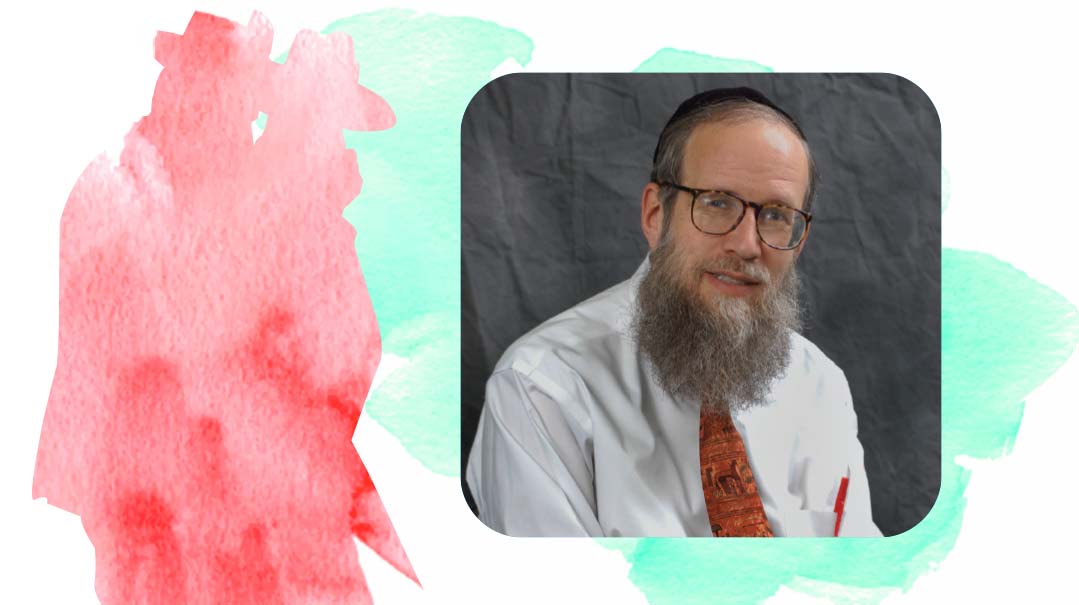
Took over: Intermountain Jewish News in Denver, Colorado
Position: Editor and publisher
Succeeded: Father and mother, Max and Miriam Goldberg
Year: 2017
Before I took over
My father worked at the IJN, which services the breadth of the Jewish community, politically, religiously, and culturally, since 1943. He passed away in 1972 and left the newspaper to my mother. I was learning in yeshivah in Israel, and from there, I joined the IJN on a regular basis, writing a weekly column called “The View from Jerusalem.” I had experience with newspaper writing and publishing from high school and college. In 1983, after teaching in yeshivos and The Hebrew University, I moved back to Denver and worked alongside my mom as a writer. Our talented managing editor, Doris Sky, passed away suddenly in 1990, and I took on some editorial responsibilities. I had learned a lot of the editorial side from my dad, and over the next decade, I was gradually trained by my mother in the business side. I started taking on more publisher’s responsibilities like advertising and management. Today I do that as well as editorial responsibility.
The biggest challenge I faced right away
Figuring out how to maintain a regular program of Torah study and research while taking on an absorbing newspaper job. At the newspaper itself, the big challenge was to accustom the community to a more forceful editorial page that advocated for greater Jewish communal expenditures on day school education, to ensure Jewish continuity. The basic premise of my argument was that the UJA was sending funds to cover a large portion of Israel’s budget, and we argued that for American Jewry’s self-preservation the funds should be redirected to day schools. To my regret, the position was not received, and as I ironically and bitterly put it now, I won all the arguments — because there is virtually no one left to argue with. In most cases, the children of that older generation intermarried, didn’t marry, didn’t have children, or fell away due to ignorance of Torah — they’ve disappeared. You have no idea how many once-stellar names in American Jewish leadership have left no, or virtually no, trace.
My first big decision
To publish additional special sections besides the weekly newspaper. I thought that the Jewish community, which had transformed from an immigrant community trying to survive to a very different community dominated by people with a higher education, needed more sophisticated and serious material. The first addition I implemented was a literary supplement in 1983 — and of course, the big question was whether it would be financially viable. I took charge of soliciting advertising for the new section, and it worked out.
What I wish I’d known from the start
How deeply challenged American Jewry was for its very existence, and how this would affect my business. Over the decades, I’ve seen many local Jewish organizations shrink or fold, and countless families unable to produce a next generation of concerned Jews — a disastrous effect of intermarriage and assimilation. Back in the ‘80s, you couldn’t live with the illusion that everyone was frum, especially if, like me, you weren’t in a large community on the East Coast, but many of the not-frum had great concern for the Jewish community and for Israel. Today, unfortunately, there are so few Jews in the wider Jewish world who are passionate and committed. And because the passion hasn’t been transferred to this generation, sustaining a Jewish community — and a Jewish newspaper — is extremely challenging. I didn’t foresee that. The challenge now is to sustain the good name of Israel and to highlight the spiritual and familial benefits of halachic observance, that is, of “generation to generation.”
When I miss my parents most
I miss them most not in the context of the IJN. My dad’s 49th yahrtzeit is coming up, but I miss him terribly still, both for his love and great critique of my writing. He also had a way of injecting dry humor into the most tension-filled deadline circumstance. Now my wife, Elaine, does the same. My mother, who lived to 100, had two traits you rarely see together: incredible sweetness and incredible shrewdness. When Mom took over the newspaper, the media business was quite male-dominated. She had no college education and no training, but Mom held her own — yet when she passed away, people described her as “feminine, not feminist.” Questions are always coming up here — How do we balance the contradictory demands of two readers? How do we diplomatically reject demands that we put petty personal issues into the paper? How do we respond to the reader who sees us as too far left politically, and at the same time to the reader who sees us as too far right? — and I wish I could ask her 100 questions a day.
Something my parents did that inspires me
At the IJN, my dad set the example of retaining the loyalty of his staff. We have people whose tenure here is numbered in three and four decades.
Something my parents did that I could never do
I will never have their middos or the respect they had for their own parents. My father visited his mother every day he was in Denver. He went in daily on his way to work, he never left to the airport from his own house, but always stopped at his mom on the way, and when he returned, he went straight to his mother to greet her.
Something I do today that my parents wouldn’t have done
I write my editorials more boldly, telling it like it is more than they deemed wise. Over the years, I’ve ruffled a few feathers unnecessarily, and I’ve been criticized for things I just wouldn’t back down on, like my argument about funding day schools. I’m learning Orchos Tzaddikim now, and he says “Love those who admonish you,” so I can be happy I get plenty of admonishment! But this does occur less as I get older, perhaps because the legitimacy of intensive day school education and Jewish observance is more widely accepted in a multicultural environment.
How I’m similar to my parents
I have a similar passion for public communication.
And how I’m different
I was blessed to receive the benefits of a higher education. I couldn’t avail myself of Torah institutions here in Denver — the day school was founded one year after I began school — yet I have years of yeshivah learning, semichah, and I also have a PhD from Brandeis University. My father had no opportunity to learn in yeshivah, and my parents left college after their freshman year, because they couldn’t afford to go on. Unlike my father, whose father died in the flu pandemic of 1918, I didn’t grow up wondering where the next meal was coming from. My father was seven years old, one of nine children, and they survived only through the pennies and nickels his brothers brought home from selling The Denver Post on street corners. I had the luxury of a higher education, and that informs my work at the IJN every day. I’ve been given the tools to add perspective, to delete uninformed “facts,” and to seek out stories that, without my education, I could not. Somehow, I’ve also found the time and focus to write books and seforim — something I could not do without the confidence and support of my wife.
If I could ask my parents one question
“Mom, can you please remind me, again, about the techniques of selling advertising? I need them! And Dad, can you please critique my weekly column?” Dad wasn’t blessed with an education, but he had a natural rare mastery of the short column.
(Originally featured in Mishpacha, Issue 878)
Oops! We could not locate your form.

